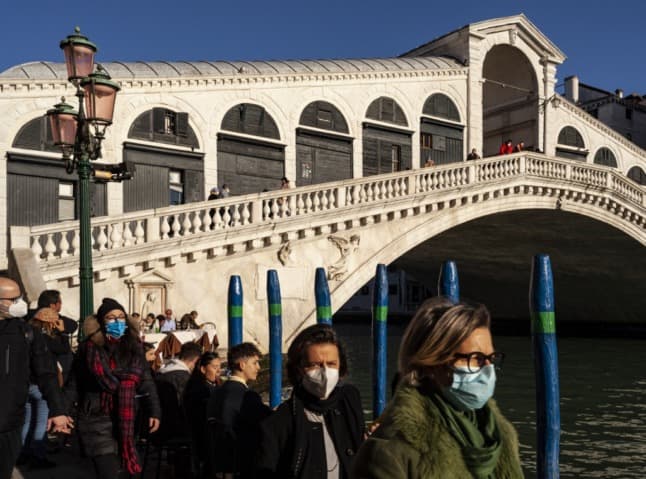"There is good news: it seems that we have reached the plateau of the curve for what concerns Omicron and it is going downhill," Covid-19 emergency commissioner Francesco Paolo Figliuolo told journalists in Milan.
"In the past two days, even in Lombardy the number of admissions to the hospital is lower than the number of discharged. This bodes well," Figliuolo said.
A large proportion of Covid-19 deaths have been in the wealthy region of Lombardy, around Milan, which recorded the first cases in Europe.
The commissioner's statement came almost a week after Italian health minister claimed on Tuesday that Italy had reached the peak of the fourth wave.
READ ALSO: At a glance: What Covid-19 rules are now in place in Italy?
As Italy recorded 228,179 coronavirus cases on Tuesday, Health Minister Roberto Speranza stated: “We are at a peak and the hope is that in the coming days there will be further decline in the curve”.
Italy reported 138,860 new Covid-19 cases on Sunday, and 227 deaths - though the daily figures released on Sundays and Mondays are lower than average, due to the fact fewer tests are carried out or recorded in the 24 hours prior.
The seven-day average numbers of new infections and hospitalisations have however decreased at the national level.
Advertisement
The situation continues to vary by region however, with some regions set to see cases peak weeks before others.
Five of Italy's 21 regions and autonomous provinces are classified as a higher-risk 'orange' zone from Monday under the current system of health measures.
Italy has adopted tough rules to curb the virus's spread, including mandatory mask-wearing in all indoor and outdoor public places, and obligatory vaccination for the over-50s.
The slowdown comes as the World Health Organization said the the planet can end the Covid-19 emergency this year by ensuring equitable access to vaccines and keeping restrictions in place.
The Omicron variant, which is very contagious but generally leads to less severe infection among vaccinated people, is now the dominant variant in Europe.
Omicron could bring the pandemic to an end in Europe, the WHO Europe director said on Monday.
“It’s plausible that the region is moving towards a kind of pandemic endgame,” Hans Kluge told AFP in an interview, adding that Omicron could infect 60 percent of Europeans by March.
In a statement on Monday he added: “We are entering a new phase, driven by the highly transmissible Omicron variant sweeping Europe, from west to east.”
Once the current surge of Omicron sweeping across Europe subsides, “there will be for quite some weeks and months a global immunity, either thanks to the vaccine or because people have immunity due to the infection, and also lowering seasonality”.
“We anticipate that there will be a period of quiet before Covid-19 may come back towards the end of the year, but not necessarily the pandemic coming back,” Kluge said.
With Omicron spreading so widely, other variants could still emerge, he warned.

Join the conversation in our comments section below. Share your own views and experience and if you have a question or suggestion for our journalists then email us at [email protected].
Please keep comments civil, constructive and on topic – and make sure to read our terms of use before getting involved.
Please log in here to leave a comment.